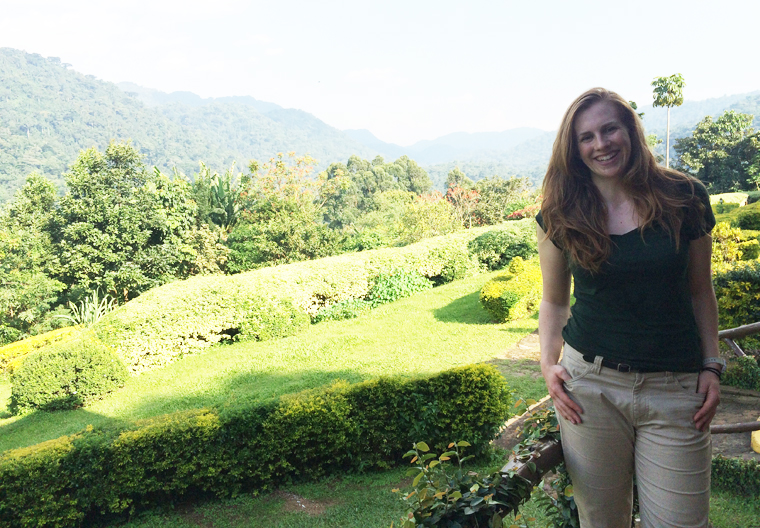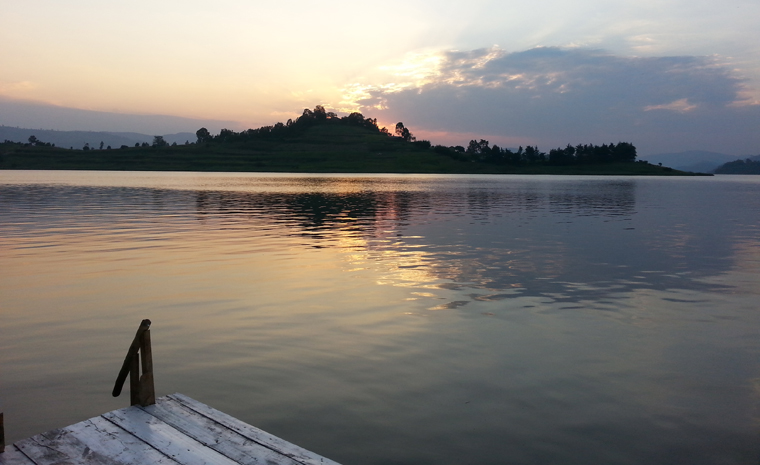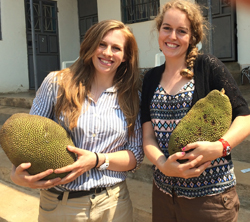Sarah MacVicar, an M.Sc. student from McGill University is in Uganda conducting her thesis research with Vivienne Steele, a Research Assistant from the University of Guelph. Sarah's work will examine the potential effects of climate change on maternal and child health among Indigenous communities in the Kanungu District of Uganda. Here is their first update from the field!
Text and photos by Vivienne Steele and Sarah MacVicar.
 Today is the first day of our third week here in Uganda. We have now spent more than a week in Buhoma, and we have been busy! Before arriving here, however, we met with partners at Makerere University and the Ministry of Health in Kampala. We were able to coordinate logistics of our upcoming five weeks of fieldwork, which involves conducting key informant interviews and community focus group discussions about pregnancy and delivery experiences in the region.
Today is the first day of our third week here in Uganda. We have now spent more than a week in Buhoma, and we have been busy! Before arriving here, however, we met with partners at Makerere University and the Ministry of Health in Kampala. We were able to coordinate logistics of our upcoming five weeks of fieldwork, which involves conducting key informant interviews and community focus group discussions about pregnancy and delivery experiences in the region.

 After catching an Aerolink flight over the impressive hills of western Uganda, we were welcomed by the staff at Green Tree Lodge, who were happy to host more visitors from IHACC. Luckily for me, I had already met the staff on my last trip, and was happy to see them again!
After catching an Aerolink flight over the impressive hills of western Uganda, we were welcomed by the staff at Green Tree Lodge, who were happy to host more visitors from IHACC. Luckily for me, I had already met the staff on my last trip, and was happy to see them again!
We started our work in Buhoma with a visit to Bwindi Community Hospital (BCH) to reconnect with staff we had worked with during our last visit. We also introduced ourselves to new and visiting staff at BCH, and were pleased to receive updates on the hospital from BCH’s executive director. Since we spend a portion of every day at the hospital, it has been helpful to invest time in getting to know all of the staff and their roles there.
One of our fieldwork goals is to visit five communities (two Bakiga communities and three Batwa settlements) in the area, in order to ask questions about pregnancy and childbirth experiences. Our first three visits have gone well; it has been exciting to meet the communities we heard much about beforehand. With the guidance of our mobilizers and translators, Seba and Grace, we have heard stories from community members and been able to share meals with the communities. One highlight was seeing a group of piglets running around near the community centre! (Sarah wanted to take one home).
Although the rainy season was supposed to have ended a month ago, we are still experiencing some heavy downpours! At one point, the rain hit during our walk home from BCH, and we had to run into a shop to buy an umbrella to continue on home. According to our friends here, the rains have stretched on a month longer than usual. It is also been “cold” here in the mornings, and we have taken advantage of this by going for a brief jog before the day begins!












